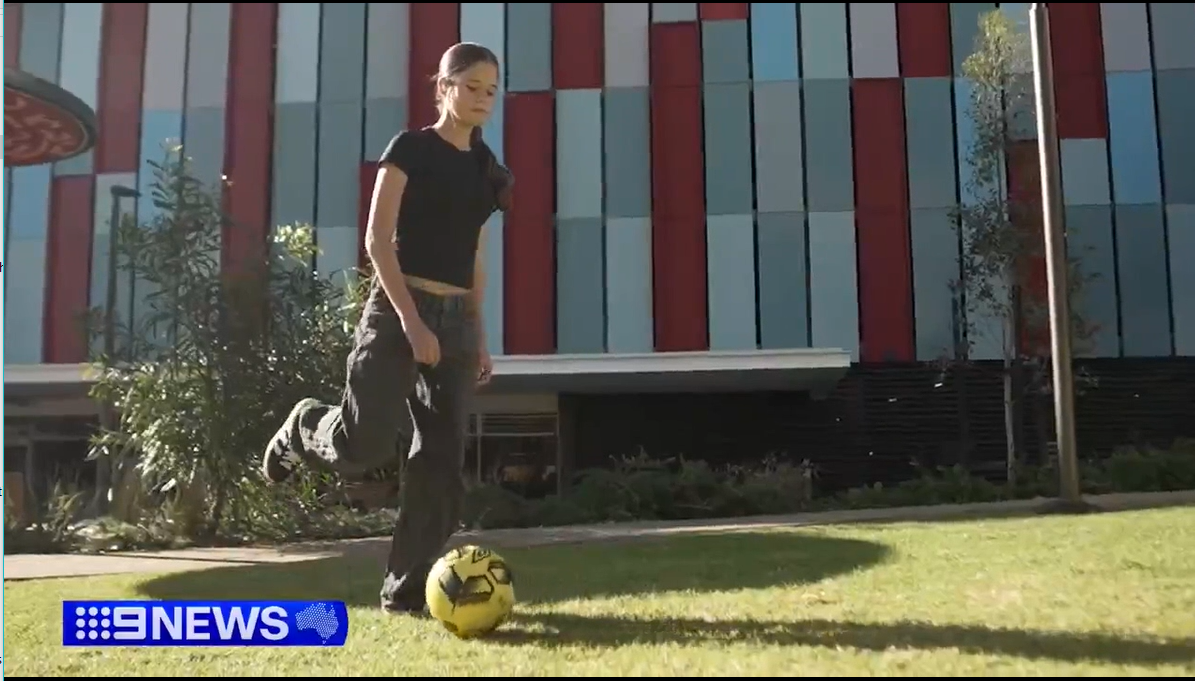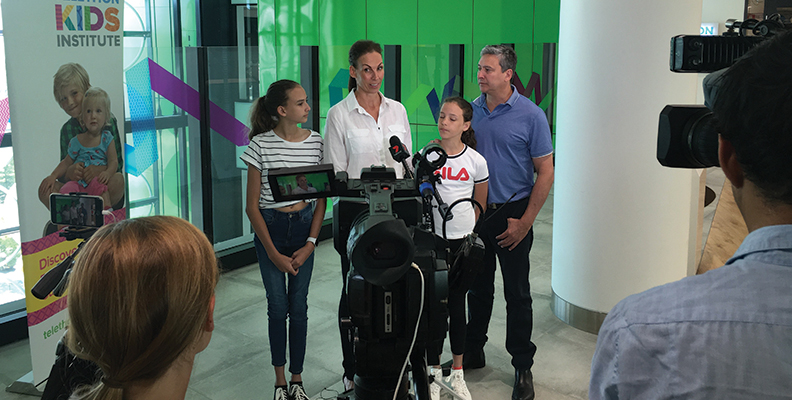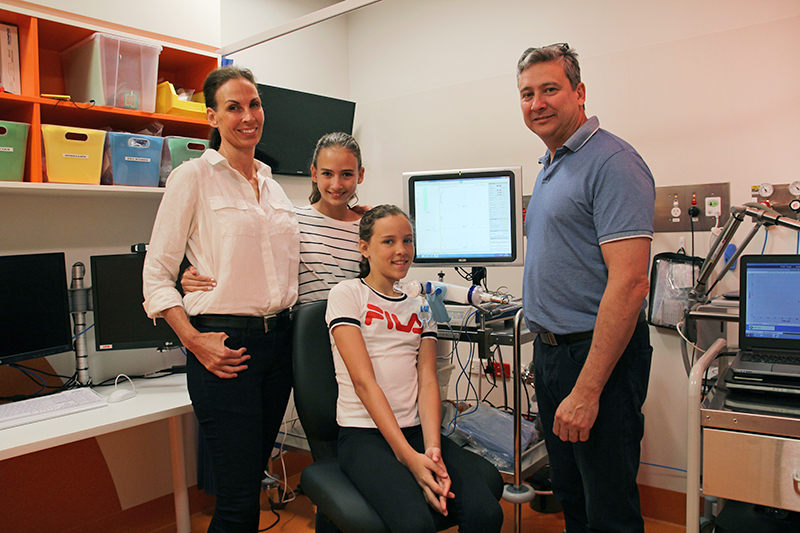Search
Research
Lung inflammation and simulated airway resistance in infants with cystic fibrosisCystic fibrosis (CF) is characterized by small airway disease; but central airways may also be affected. We hypothesized that airway resistance estimated from computational fluid dynamic (CFD) methodology in infants with CF was higher than controls and that early airway inflammation in infants with CF is associated with airway resistance.
Research
Evolution of pulmonary inflammation and nutritional status in infants and young children with cystic fibrosisImproved nutrition is the major proven benefit of newborn screening programmes for cystic fibrosis (CF) and is associated with better clinical outcomes.
Research
Value of serology in predicting Pseudomonas aeruginosa infection in young children with cystic fibrosiserology, predicting, Pseudomonas aeruginosa infection, young children, cystic fibrosis
News & Events
Telethon Institute awarded two national Centres of Research ExcellenceTelethon Institute awarded two national Centres of Research Excellence
Research
SYNERGY CF: Getting the best start to life - preventing early cystic fibrosis lung disease by solving the host-inflammation infection conundrumCystic fibrosis related progressive lung disease characterised by inflammation and infection commences soon after birth.

News & Events
Promising results for new Western Australian-pioneered cystic fibrosis drugChildren with cystic fibrosis will be included in the next phase of a clinical trial of a promising new treatment pioneered in Western Australia aimed at boosting their immune responses to infections. Originally developed by researchers at The Kids Research Institute Australia and Perth Children’s Hospital.

News & Events
New drug therapy provides hope for kids with cystic fibrosisThe Kids Research Institute Australia spin-off company, Respirion, received $20 million in funding to develop a promising new therapy.

News & Events
New drug therapy provides hope for kids with cystic fibrosisThe family of two girls with cystic fibrosis are hopeful after The Kids Research Institute Australia spin-off company, Respirion, receives $20 million in funding to develop a promising new therapy.
Research
Early nasal microbiota and subsequent respiratory tract infections in infants with cystic fibrosisRespiratory tract infections (RTIs) drive lung function decline in children with cystic fibrosis (CF). While the respiratory microbiota is clearly associated with RTI pathogenesis in infants without CF, data on infants with CF is scarce. We compared nasal microbiota development between infants with CF and controls and assessed associations between early-life nasal microbiota, RTIs, and antibiotic treatment in infants with CF.
Research
Air Trapping on Chest CT Is Associated with Worse Ventilation Distribution in Infants with Cystic FibrosisIn school-aged children with cystic fibrosis (CF) structural lung damage assessed using chest CT is associated with abnormal ventilation distribution.
